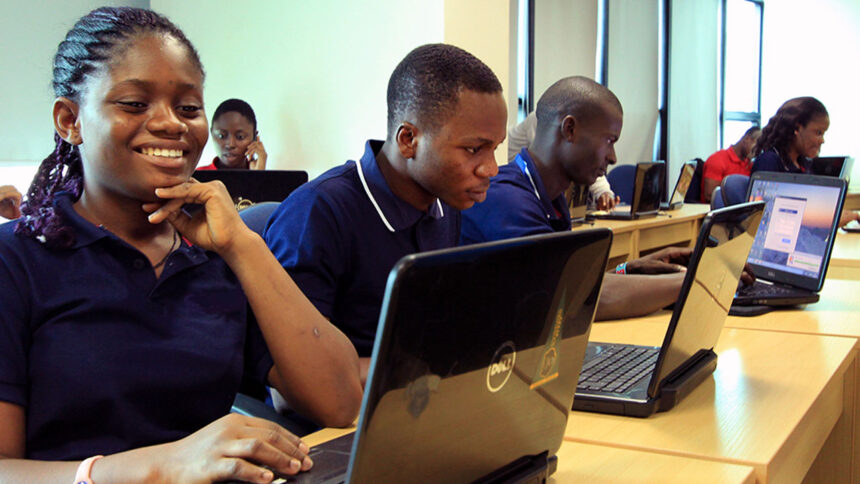A Nigerian software engineer has issued a clarion call for parents, schools, and private companies to rethink how the country prepares its teenagers for adulthood.
“A society that delays opportunity until adulthood will keep losing its youth to the streets,” he warns.
Chidiebere Okpechi, a full-stack developer, argues that while Nigeria grapples with poor governance, “what we need is the act of giving back to the community, the act of working together to build a stronger society.”
He cites global models where adolescents begin structured work or digital entrepreneurship as early as 15, urging Nigerian stakeholders to create guided pathways for teenagers to learn skills, earn income, and develop discipline alongside formal education.
The Myth of the Teenage Mogul
Okpechi’s comments were triggered by a viral, but false story of a 17-year-old Lagos girl who allegedly owns Nigeria’s largest online store. “Inspiring? Yes. True? Sadly, no,” he wrote, highlighting that most Nigerian parents still restrict smartphone use until university age.
This caution reflects a wider trend, according to the National Bureau of Statistics (NBS), fewer than 3 in 10 Nigerian teens between 15 and 19 earn any form of digital income. Compare this with South Korea, where over half of secondary students operate micro-businesses online, or the United States, where teen e-commerce participation stands at nearly 50%.
Experts warn that such myths of overnight teen success can be harmful, pushing adolescents toward unrealistic expectations and informal hustles that risk fraud and exploitation.
Okpechi argues that without structured mentorship, “we leave them exposed to the world’s vast knowledge but without guided experience, leaving them vulnerable to peer pressure, fraud, and the rush to ‘make it quick.’”
Lessons from Global Youth Economies
Around the world, teenagers routinely balance school with work or entrepreneurship, often with strong institutional support. Shopify data shows that nearly half of its global merchants are aged 18–34, many of whom started small ventures during their mid-teens.
Switzerland provides a notable model: its dual-track education system allows students to start paid apprenticeships at 15, and over 70% of Swiss youth complete such programs, which are credited with the nation’s youth unemployment rate of just 2.1%.
In Southeast Asia, teens use TikTok Shop and Shopee to sell fashion, food, and crafts, often guided by parents or community cooperatives. The International Labour Organization notes that supervised youth work correlates with a 30% lower unemployment risk in adulthood.
“By adulthood, they don’t just have certificates,” Okpechi said. “They have income, discipline, and confidence, a combination Nigeria desperately needs to nurture.”
The Digital Skills Deficit
Nigeria’s digital readiness remains far behind global peers. A 2024 World Bank survey found that only 32% of Nigerian secondary-school students possess basic digital skills, such as coding or data analysis, compared with over 70% in Estonia and Finland, two countries celebrated for tech innovation.
This shortfall directly limits employment prospects in an economy where ICT already contributes more than 18% to GDP. Okpechi recalls his own turning point when his parents enrolled him in a computer school at 13, right after Junior WAEC.
“That decision built the foundation for what I do today,” he said.
This underscores how early exposure can spark curiosity and provide the confidence to pursue STEM careers. With Nigeria’s youth unemployment hovering around 33%, experts warn that failure to integrate digital skill-building in junior secondary education will worsen economic inequality and push more teenagers into low-skill, low-pay work or crime.
Community and Corporate Partnerships
Okpechi stresses that while government policy is slow to evolve, private and community-led initiatives can act now.
Recalling his first internship at Cutix Plc, he said: “No CV. No experience. Just an opportunity.”
That experience gave him his first paycheck and real-world lessons. Corporate social responsibility programs could replicate this, offering structured internships for teenagers during holidays or weekends.
Evidence backs this approach: a 2023 African Development Bank study found that students who participated in company-sponsored vocational placements were 25% more likely to secure stable jobs within three years of graduation.
In Kenya, for example, partnerships between tech hubs and high schools have produced hundreds of teen-led startups. Nigerian schools could partner with local startups to introduce entrepreneurship labs, maker-spaces, or short coding bootcamps.
Okpechi argues that “companies opening their doors to teenage interns, no CV, just curiosity, could be transformative for both industry and youth.”
Reframing Parental Roles
Parents remain the first and most crucial enablers.
“What if parents encouraged guided digital opportunities instead of waiting for ‘after school’?” Okpechi asks.
Structured after-school programs in trading, fashion design, coding, or content creation could allow a Senior Secondary School student to operate a small online shop with tools that automate logistics and reduce stress.
Research from the University of Lagos shows that teens engaged in supervised business projects are 40% more likely to pursue higher education and 35% less likely to be drawn into peer-pressure-related crime.
Parenting experts like Sulayman Aishat also emphasize the need for digital literacy: rather than forbidding smartphone use, parents can co-create rules for safe online engagement and encourage skill-based digital activities.
This, Okpechi suggests, can “build confidence and entrepreneurial thinking while keeping education on track.”
Building a Generation of Innovators
While acknowledging the constraints of poor governance, Okpechi believes change can start at home and within local communities. His call echoes UNICEF’s 2025 report urging African nations to prioritize youth empowerment as a safeguard against rising migration and crime rates.
Analysts point out that Nigeria’s median age is just 18, representing a massive potential workforce if properly trained.
“A society that empowers early will raise builders, innovators, and creators,” he concludes.
By embedding practical skills, digital literacy, and mentorship into teenage life, Nigeria could convert its youth bulge into a demographic dividend, fueling entrepreneurship, reducing unemployment, and ensuring that its teenagers lead smart, productive lives rather than being lost to the streets.
Talking Point
The arguments in this story underscore a vital truth: Nigeria cannot afford to delay digital and entrepreneurial exposure for its teenagers, and the recent partnership between the Universal Basic Education Commission (UBEC) and a U.S.–based tech company to distribute 47 million learning devices to teachers and students nationwide offers a concrete pathway to bridge the gap Okpechi highlights.
By equipping secondary schools with tablets and laptops, UBEC is laying the hardware foundation for early digital engagement, but the true impact will hinge on how those devices are integrated into structured, skill-driven programs rather than left as mere e-textbook readers.
If combined with targeted curricula, coding clubs, online commerce training, and supervised digital marketplaces, these tools could accelerate the kind of guided opportunities Okpechi envisions, enabling students to build real businesses while still in school.
For Nigeria, the scale of UBEC’s rollout, covering millions of students and teachers, could democratize access, reduce the urban-rural digital divide, and give even low-income teens the chance to learn marketable skills before graduation.
However, without robust teacher training, cybersecurity safeguards, and partnerships with private firms to create teen-friendly incubators, the initiative risks becoming another underused government program.
Done right, though, it could transform classrooms into micro-innovation hubs, turning Okpechi’s call for early empowerment into a national reality and fostering a generation of Nigerian teenagers who not only consume technology but actively create and monetize digital solutions.





